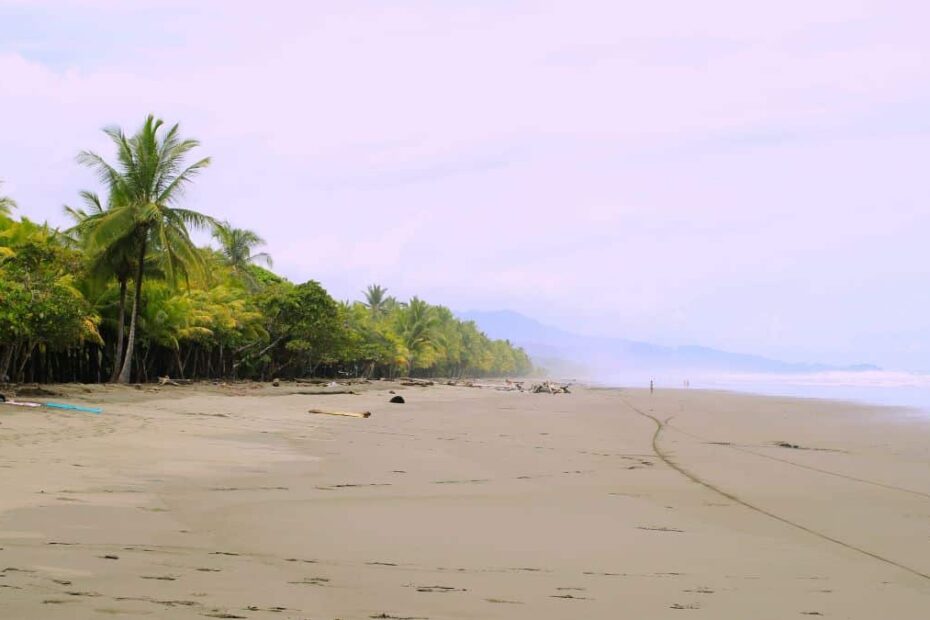Are you from the UK and planning on relocating to Central America? Here are thirteen expat money tips to make things easier for you.
Moving from the UK to any of the countries in Central America is an exciting prospect. There’s a new future in store, away from the bleakness of British life, in a tropical environment. What’s not to look forward to? But one thing potential expats need to think carefully about is how to manage your money once you’re in Belize, Costa Rica, El Salvador, Guatemala, Honduras, Nicaragua, or Panama. The following simple expat money tips can help you whether you’re moving for work reasons, to start again with your family, or for retirement.
1. Get Familiar with Local Currencies and Banking
If you’re not familiar with the various currencies across Central America, you’ll need to get your knowledge up to scratch as quickly as possible for the country you’re moving to. Build a good understanding of exchange rates so you have a strong idea of how much you’re spending and how much cash you have available. One tip is to begin thinking in US dollars rather than pound sterling – you’ll eventually end up doing that anyway, so start as soon as possible!
Find out where the ATMs are in your local area for when you need to draw out physical cash and learn about transaction fees. Most ATMs will accept cards from your UK bank account, so keep that open to ensure your financial transactions run as smoothly as possible.
It will also be worth opening a local bank account to cover online bills and negate transaction fees.Please note, though, that some countries make it difficult to open an account without residency, so keeping your UK account active is important, at least during the first year or so. One useful option is to open an offshore account in Belize.
In the meantime, here’s an overview of the different currencies used around Central America:
- Belize: Belize dollar (BZD) – pegged to the US dollar at a rate of 2 BZD = 1 USD
- Costa Rica: Costa Rican Colón (CRC)
- Guatemala: Guatemalan Quetzal (GTQ)
- Honduras: Honduran Lempira (HNL)
- Nicaragua: Nicaraguan Córdoba (NIO)
El Salvador and Panama both use the US dollar as their currency. In Panama, the official currency is the Panamanian Balboa (PAB), but really, it’s the US dollar. When using cash, outside of a few coins, you’ll be using dollars in Panama and the Balboa-to-dollar exchange is set at 1 PAB to 1 USD. As far as El Salvador goes, it’s even simpler – it’s the US dollar and that’s that. El Salvador also accepts Bitcoin as legal tender.
With the other currencies, outside of the Belize dollar, which is pegged to the US dollar, exchange rates fluctuate. It’s always a good idea to check the current rates and again, if you can get used to thinking in dollars rather than pounds, you’ll find it more useful in the long run.
Thinking about opening an offshore bank account but unsure which country to use? In the below article, @luigiwewege from @CayeIntBank outlines the top ten benefits of banking in Belize.https://t.co/diOrzAL65h
— Central America Living (@VidaAmerica) September 13, 2023
2. Create a Budget
One of the most important expat money tips we can offer is to establish a budget. Make a list of your incomings and outgoings, taking into account anything you have coming in over the course of a month and everything you think you’ll be spending. Don’t underestimate how much you might be spending on leisure as you start making the most of your new life abroad. Think about your daily living expenses, healthcare costs, and housing. You may need to adjust your budget in future as you get a better idea of your cost of living.
Speaking of cost of living in Central America, know that this varies from one country to another, regardless of your personal lifestyle. Costa Rica, Panama, and Belize are generally much more expensive than El Salvador, Guatemala, Honduras, and Nicaragua. Research the variations in expenses including transport, housing, and groceries so you can choose a location that works for you and your budget.
What’s the most expensive country in Central America? The cheapest? We take a country-by-country dive into the cost of living in Central America for expats, and see what expats in each country are saying on social media about their living expenses. https://t.co/sADoKCj2NY
— Central America Living (@VidaAmerica) March 30, 2023
3. Taxes
The tax implications of living abroad can be very different to those of staying in the UK. Talk to a tax specialist who has a great knowledge of tax laws in the UK and the country you’re moving to. They’ll be able to help you stay compliant and take advantage of any credits or exemptions that might be available. You may still be liable for UK tax even after you have relocated, so bear this in mind.
4. Start an Emergency Fund
Expensive emergencies can arise no matter where you live. This is why it’s so important to create and maintain an emergency fund to help cover expenses like medical emergencies, unexpected travel requirements, and car repairs. When you have a sufficient financial safety net, this can give you greater peace of mind and help you avoid tapping into other funds that you might have put to one side.
There’s also always a chance that you will need to leave your new location quickly and return home. Find out what the costs of leaving are likely to be and build a fund so you can cover them with ease.
5. Healthcare Options
Investigate the available healthcare options in your new country. Find out whether there are any public healthcare services available and if you’re eligible. Most public healthcare systems in Central America are not up to par, so you should get private health insurance as soon as possible. This is what most expats do.
Planning a move to Central America? Ensure access to top-notch healthcare for you and your family with our guide to the best hospitals in the region.https://t.co/MJee4wYE0C
— Central America Living (@VidaAmerica) May 23, 2023
6. Seek Financial Advice
If you have an investment portfolio, speak to a financial advisor who can help you manage it. A financial advisor with experience of both the UK and foreign markets can assist you. They might also be able to provide you with advice on managing pensions.
7. Network with Other Expats
Another thing that can be very helpful when you’re moving from the UK to Central America is to talk to others who have done the same thing. People who have been in the region for longer can offer essential information on making your money go further, discuss investment opportunities with you, and tell you about local banking practices. Get onto the expat Facebook groups to speak to people.
Whether you’re living or traveling in Central America, these expat Facebook groups will inform, entertain, and help you with your networking needs. https://t.co/coD3c6YEtG
— Central America Living (@VidaAmerica) September 14, 2023
8. Learn Spanish
Unless you’re moving to Belize, it’s wise to start learning some Spanish as soon as you can. This can help help you communicate more effectively with financial institutions. It can also help you earn respect and avoid the common phenomenon known as “gringo pricing” (where vendors and tradespeople jack up the cost of things for you because they see you as a rich tourist).
9. Diversify your Income
It can be helpful to create different income streams when you’re settling into your new life in Central America so you’re not just depending on one. Some of the things people do to earn cash in Central America after moving from the UK include freelancing, travel consulting, and investing in location businesses.
Four ways an expat (or potential expat) in Central America can achieve financial independence.#expatlife #financialindependence #centralamericahttps://t.co/KV2L0WBpSZ
— Central America Living (@VidaAmerica) October 28, 2021
10. Education Planning
If you have children or plan to start a family, research and plan for educational options in your new country. Understand the cost of international or local schools, and consider setting up education funds or savings plans to cover tuition and related expenses.
11. Think Before Buying Property
It’s not uncommon for people to invest in property after moving from the UK to Central America. Seek professional advice from specialists who can give you detailed information on property values, potential rental income, and what the legal requirements are for foreign investors. We would always recommend renting for at least a year or two in your new country before buying anything.
Real estate agent David Karr outlines the top five mistakes he sees people make when buying property in Costa Rica, and how to overcome them.https://t.co/aMWjeEahbU
— Central America Living (@VidaAmerica) September 14, 2022
12. Benefits
You may be able to transfer some social security benefits to Central America. Find out whether this is possible rather than just presuming that this will happen automatically.
13. Build a Good Credit Rating
Even if you have a good credit rating in the UK, you may need to start from scratch if you move abroad. This can take time. You can build up a good credit rating in Central America by managing any credit you take out responsibly, paying utility bills on time, and getting a secured bank. If you open an account with an international bank, your UK credit rating may be taken into account when you want to borrow from them.
Planning and Research is Key
Moving to Central America as a UK expat can be rewarding, but you’ll need to plan carefully and carry out in-depth research before you relocate. Find out how local financial systems work, create budgets and keep yourself up to date with the latest tax laws to make your relocation a successful one. We hope these expat money tips prove useful with your new life in the tropics!



